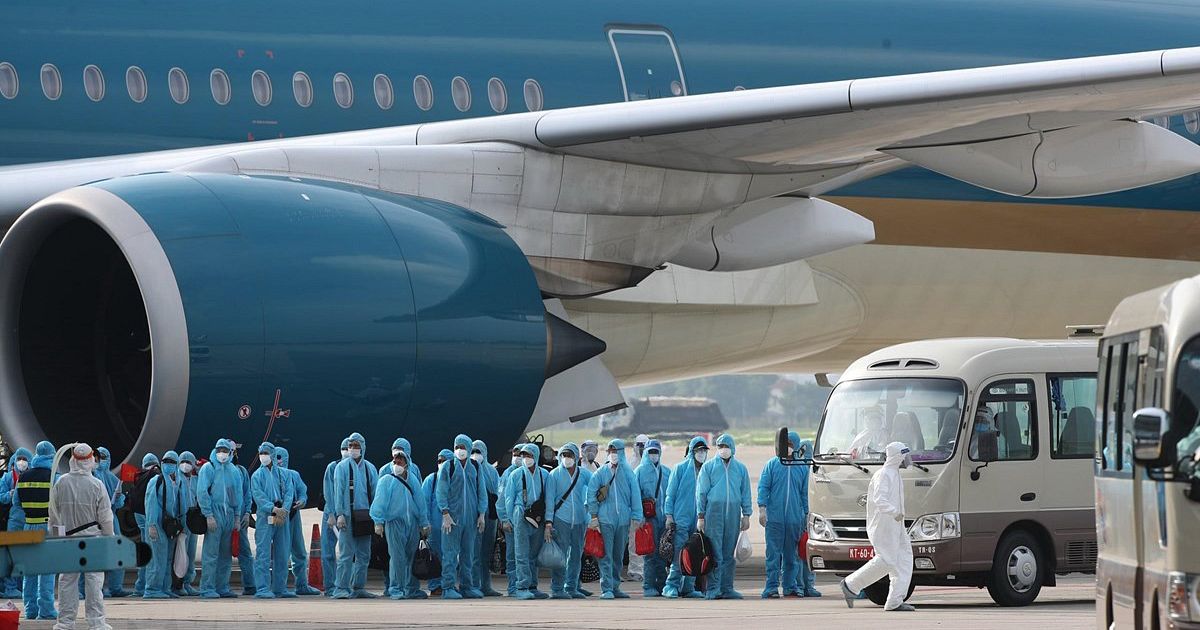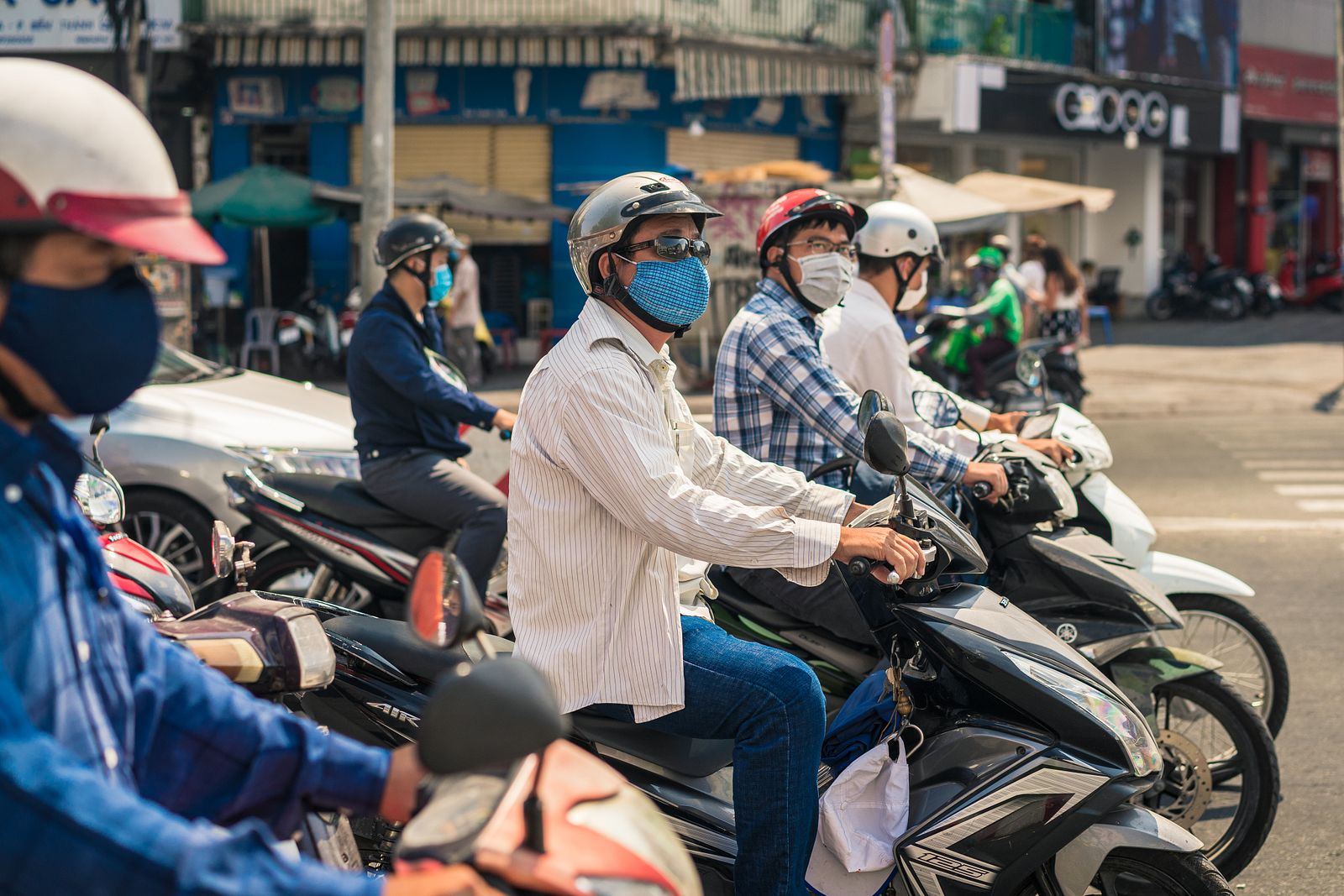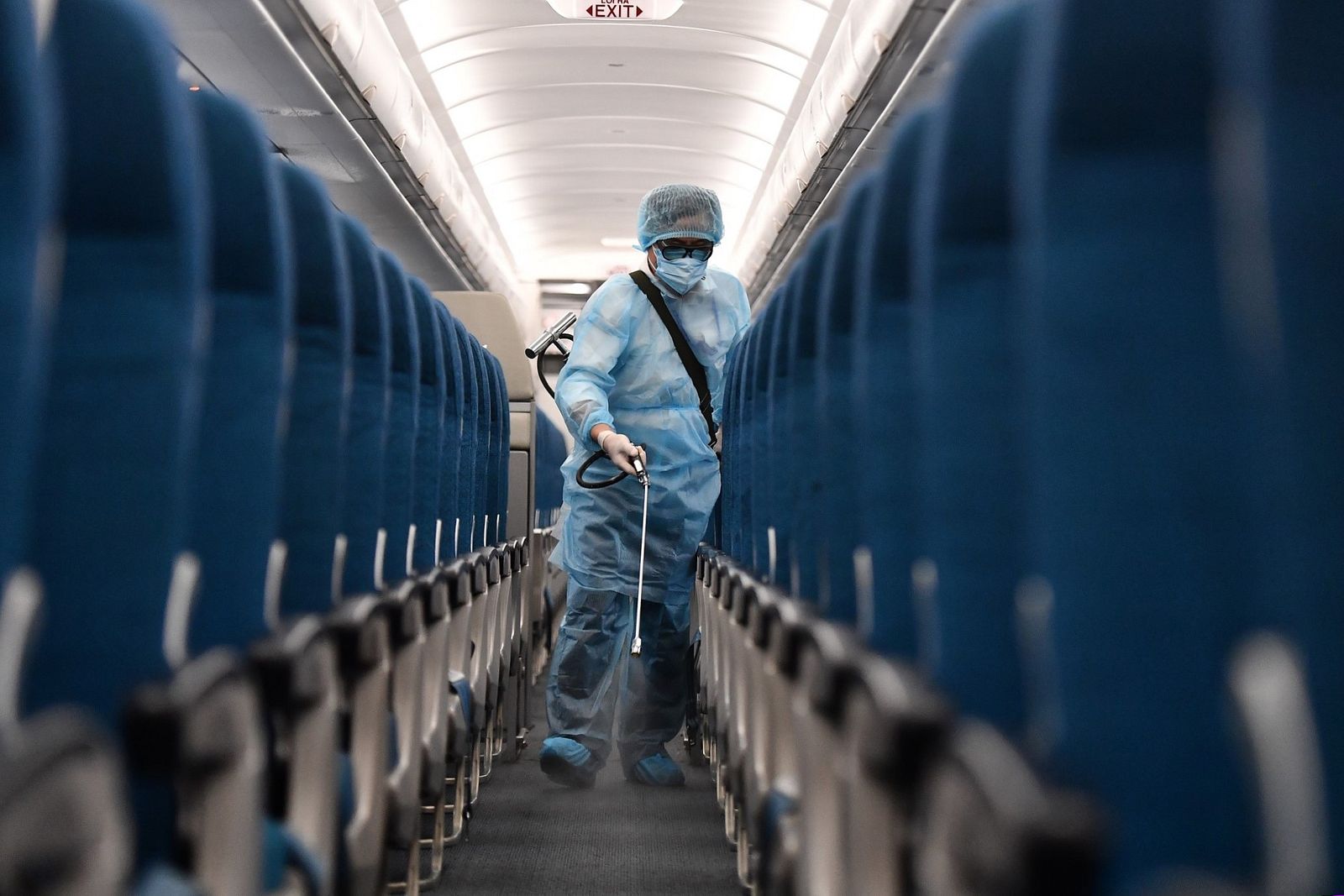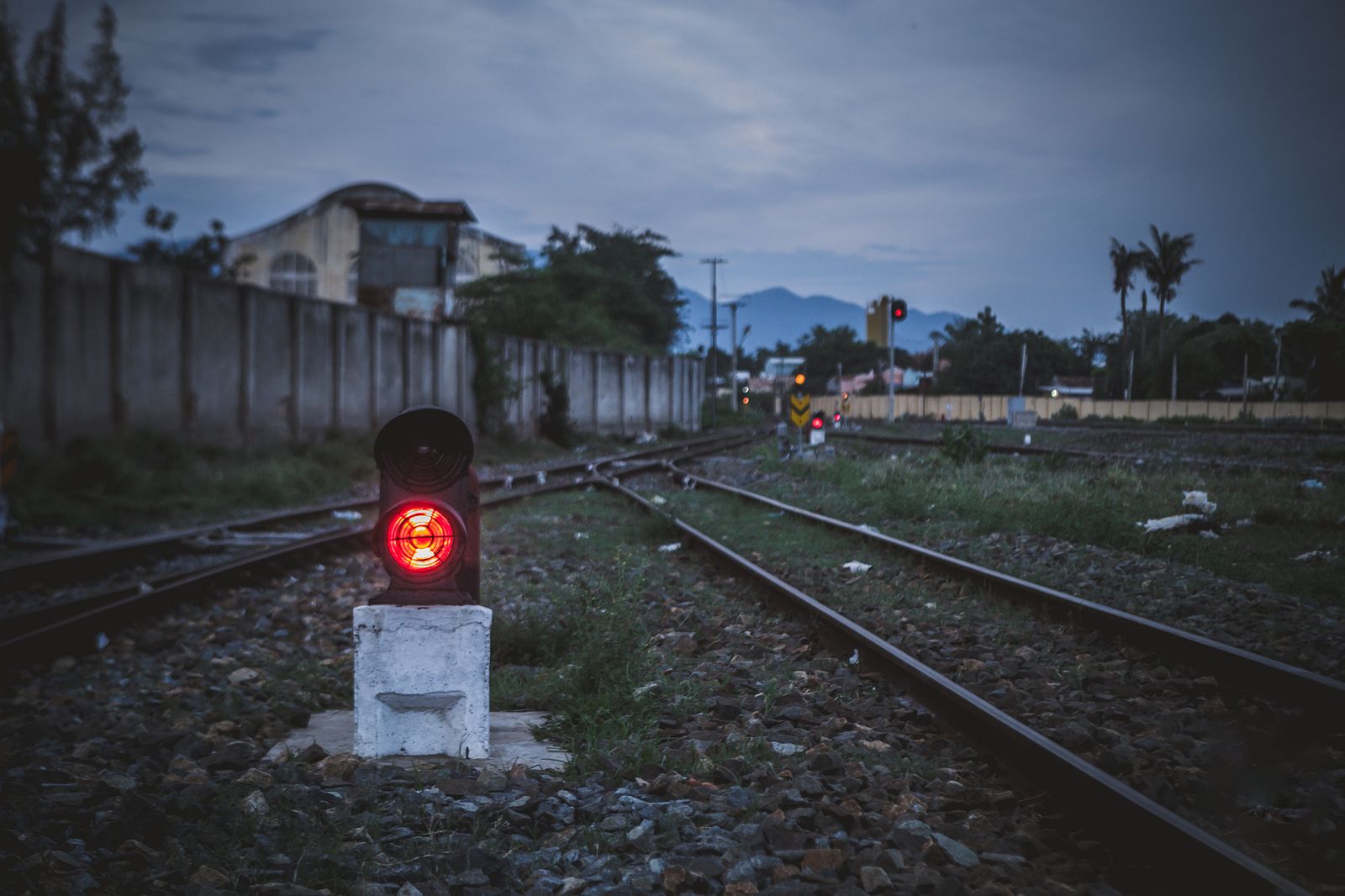A Vietnam Airlines flight attendant was a key link in the country’s recent cases of community-transmitted COVID-19.
After almost three months without any detected coronavirus infections in the community, Vietnam is once again on alert because of a chain of infections that made its way into Saigon’s Tan Binh District from a quarantine facility operated by national air carrier Vietnam Airlines for its employees.
Case 1,342, a flight attendant, was allowed to self-quarantine at home after four days of centralized isolation and two negative tests. He met three people during the period, his mother and two friends. When a third test came back positive a few days later, all of his direct contacts were screened and one friend became Case 1,347. Not knowing he was infected, the friend, a teacher at an English tuition center, carried on his daily routines as normal, leading to at least two other infections in Saigon.
Who’s to blame?
At a press conference that took place yesterday, December 1, the departments of health and communications of Ho Chi Minh City discussed the ongoing COVID-19 outbreak related to the two aforementioned new cases.
Director of the HCMC Health Department Nguyễn Tấn Bỉnh explained that crew members of each Vietnam Airlines flights are to undergo quarantine in separate areas at the facility. Case 1,342 visited another flight attendant without permission and contracted SARS-CoV-2 from this person. This falls under Vietnam Airlines’ responsibility to monitor their staff, Bỉnh said.
It was announced that the central government has tasked the Ministry of Transport with determining who and how to punish involved individuals at the national carrier. According to Bỉnh, Hanoi and Saigon have agreed to impose a full two-week of quarantine for attendants, even with negative tests.
Why are flight attendants allowed to self-quarantine at home?
Dr. Trần Đắc Phu, adviser of the Center for Emergency Public Health Events, as quoted by Lao Dong, confirmed that allowing flight attendants to continue their quarantine at home is in accordance with official dispatch No. 3588.
Specifically, while in centralized quarantine, if crew members have two negative COVID-19 tests that are 72 hours apart and none of the passengers on their flight tests positive for the virus, they are permitted to leave the facility to continue the remaining 10 days at their residence. If any of the first tests are positive, everybody on the flight has to undergo a full 14 days of quarantine. Case 1,342 tested negative on November 15 and 18, but tested positive on November 28.
According to guidelines by the General Department of Preventive Medicine, while quarantining at home, citizens are not allowed to leave home and must eat, live and sleep in an area separate from other family members. Interpersonal interactions must be minimized.
In an interview with Zing, a Vietnam Airlines representative said that the company doesn’t have any plan to change the policy to allow home quarantine. “Before Case 1,342, we believed that two negative tests were enough, but after this, we will request for three, four tests,” he explained.
The need for the policy also stems from the airline’s human resources problems: “If all crew members must undergo the full 14 days in Cu Chi [field hospital] no matter how many times they test negative, it will only take a few flights before we run out of pilots.”
Will there be legal consequences for Case 1,342?
At the conference on December 1, Minister of Health Nguyễn Thanh Long stressed the severity of Case 1,342’s breach of quarantine regulations, causing major public health issues. He suggested that the flight attendant should face charges. At the time of writing, officials have not moved forward with a prosecution.
Lawyer Trần Minh Hùng opined that prosecutors need to examine the behavior of Case 1,342 before making a decision on the level of penalty. For an administrative charge, the patient could face a fine of VND5–10 million. However, a criminal charge could result in 1–5 years in jail or a fine of VND50–200 million.
Social effects
News of the recent COVID-19 cases have soured the image of Vietnam Airlines attendants in the public eye. According to an internal memo sent by the airline, confirmed by Zing, some instances of verbal abuse and ostracism were reported by Vietnam Airlines staff. Most seriously, a member of the public attacked an attendant with a burning cigarette while the victim, in their work uniform, was at a red light.
The air carrier emphasized the danger of wearing its uniform in public places and cautioned staff members to not don the recognizable uniform, especially áo dài, while out and about.
[Photo via VNA]














